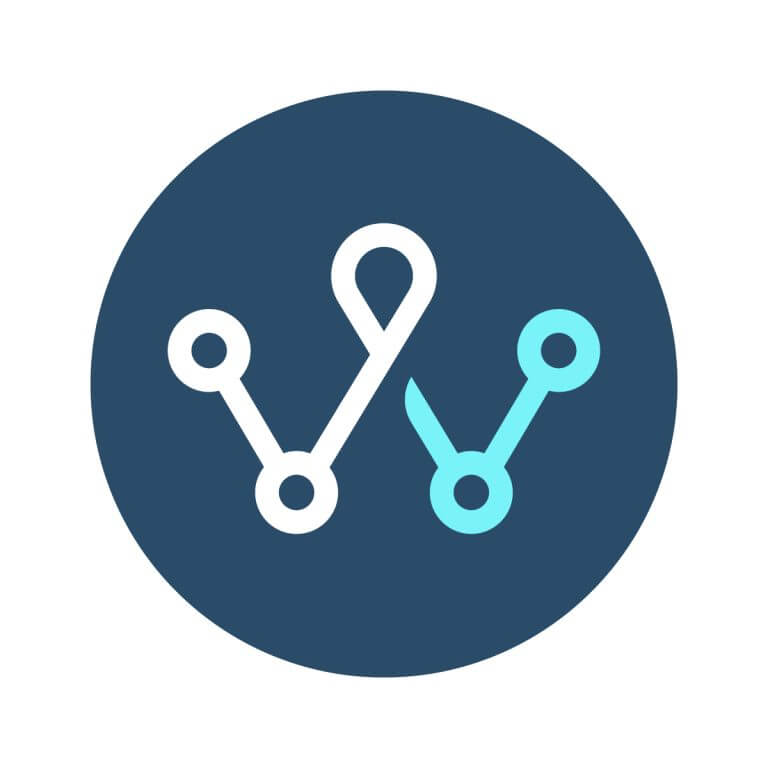Authored by: The WayPath CRM Team
Introduction
In today’s competitive business environment, having a robust Customer Relationship Management (CRM) system is crucial for maintaining and improving customer relationships, streamlining processes, and driving growth.
Microsoft Dynamics and Salesforce are two of the most comprehensive and powerful platforms among the leading CRM solutions. This guide aims to provide an in-depth comparison of Microsoft Dynamics and Salesforce in 2024, helping businesses make an informed decision based on their specific needs and goals.
Company Backgrounds
History and Evolution of Microsoft Dynamics
Microsoft Dynamics, part of the larger Microsoft ecosystem, has a rich history dating back to the early 2000s. Initially launched as a set of ERP and CRM applications, Microsoft Dynamics has evolved into a comprehensive suite that includes Dynamics 365. This modern iteration integrates seamlessly with other Microsoft products, offering a unified experience across various business functions.
History and Evolution of Salesforce
Salesforce, founded in 1999, revolutionized the CRM industry with its cloud-based approach. As one of the first companies to deliver CRM software as a service (SaaS), Salesforce quickly became a leader in the market. Over the years, Salesforce has expanded its offerings to include a wide range of enterprise applications, covering sales, service, marketing, and more, all within its Salesforce Customer 360 platform.
Features Comparison
Core Features of Microsoft Dynamics
- Sales and Marketing Automation: Microsoft Dynamics offers tools for managing sales pipelines, automating marketing campaigns, and tracking customer interactions.
- Customer Service: Features include case management, service level agreements (SLAs), and omnichannel support.
- Field Service: Capabilities for managing work orders, scheduling, and resource optimization.
- Finance and Operations: Integrated ERP features for financial management, supply chain, and operations.
- Integration with Microsoft Products: Seamless integration with Office 365, Teams, and other Microsoft tools.
Core Features of Salesforce
- Sales Cloud: Tools for managing leads, opportunities, and sales processes.
- Service Cloud: Comprehensive customer service management, including case tracking and knowledge management.
- Marketing Cloud: Advanced marketing automation, email marketing, and customer journey mapping.
- Commerce Cloud: E-commerce solutions for both B2B and B2C businesses.
- Platform and Ecosystem: Extensive app marketplace (AppExchange) and customization options through the Salesforce platform.
Side-by-Side Features Comparison Table
| Feature | Microsoft Dynamics | Salesforce |
| Sales Automation | Yes | Yes |
| Marketing Automation | Yes | Yes |
| Customer Service | Yes | Yes |
| Field Service | Yes | Limited |
| Finance and Operations | Yes | No |
| Integration with Other Tools | Strong (Office 365, Teams) | Moderate (Various Integrations) |
| App Marketplace | Moderate (AppSource) | Extensive (AppExchange) |
| Customization | High | High |
| AI and Analytics | Yes (Power BI, AI Builder) | Yes (Einstein Analytics) |
Pricing Models
Microsoft Dynamics Pricing Tiers and Options
Microsoft Dynamics 365 offers a flexible pricing model based on individual applications and user licenses. Pricing typically starts at $50 per user per month for basic sales and customer service modules, with more advanced features and additional modules increasing the cost.
Salesforce Pricing Tiers and Options
Salesforce operates on a tiered pricing model with various editions for different needs:
- Essentials: $25 per user per month
- Professional: $75 per user per month
- Enterprise: $150 per user per month
- Unlimited: $300 per user per month
Additional costs may apply for add-ons and premium support options.
Cost Analysis for Different Business Sizes
- Small Businesses: Microsoft Dynamics can be more cost-effective due to its modular approach, allowing businesses to pay only for their needs. Salesforce Essentials is also a viable option for small teams.
- Medium Businesses: Both platforms offer mid-tier options that cater to growing businesses, though Microsoft Dynamics’ integration with other Microsoft products may offer additional value.
- Large Enterprises: Salesforce’s comprehensive enterprise solutions may provide more value for large organizations with complex needs despite the higher cost.
User Interface and Experience
Overview of Microsoft Dynamics UI/UX
Microsoft Dynamics offers a clean, modern interface that integrates seamlessly with other Microsoft applications. The user experience is consistent across various modules, providing a familiar environment for Microsoft Office and Teams users. Customizable dashboards and AI-driven insights enhance usability.
Overview of Salesforce UI/UX
Salesforce’s user interface is highly customizable, allowing businesses to tailor the experience to their needs. The platform offers a variety of themes and layouts, and the mobile app provides a robust experience for users on the go. Salesforce’s Lightning Experience enhances usability with its intuitive design and advanced analytics.
Pros and Cons of Each
Microsoft Dynamics:
- Pros: Seamless integration with Microsoft ecosystem, customizable, strong field service capabilities.
- Cons: Steeper learning curve for non-Microsoft users, potentially higher costs for extensive customization.
Salesforce:
- Pros: Highly customizable, extensive app marketplace, strong mobile experience.
- Cons: Higher cost for advanced features, complexity in integration with non-Salesforce tools.
Integration Capabilities
Integration Options for Microsoft Dynamics
Microsoft Dynamics integrates natively with a wide range of Microsoft products, including Office 365, Teams, and Azure. It also supports integration with third-party applications through connectors and APIs, though the focus is on enhancing the Microsoft ecosystem experience.
Integration Options for Salesforce
Salesforce boasts an extensive ecosystem with its AppExchange marketplace, offering thousands of third-party applications and integrations. It supports integration with a variety of external systems through APIs, middleware, and custom development, making it highly versatile for diverse business needs.
Comparison of Ecosystem and Third-Party App Support
While Microsoft Dynamics excels in integrating with the Microsoft ecosystem, Salesforce’s AppExchange provides a broader range of third-party applications and integrations, giving it an edge in versatility and customization.
Customization and Scalability
Customization Options in Microsoft Dynamics
Microsoft Dynamics offers robust customization options, allowing businesses to tailor the platform to their specific needs. Custom workflows, dashboards, and reports can be created using built-in tools. The Power Platform further enhances customization with Power Apps, Power Automate, and Power BI.
Customization Options in Salesforce
Salesforce is renowned for its customization capabilities. The platform allows for extensive customization of objects, fields, and workflows. Salesforce’s Apex programming language and the Lightning Component Framework enable advanced customizations and the creation of custom applications.
Scalability for Growing Businesses
Microsoft Dynamics and Salesforce are highly scalable, catering to businesses of all sizes. Microsoft Dynamics’ modular approach allows businesses to add features as they grow, while Salesforce’s tiered pricing and extensive feature set can accommodate increasingly complex needs.
Performance and Reliability
Performance Benchmarks for Microsoft Dynamics
Microsoft Dynamics 365 is built on a robust cloud infrastructure powered by Azure, offering high performance and reliability. Regular updates and improvements ensure that the platform remains fast and efficient, even as data volumes grow.
Performance Benchmarks for Salesforce
Salesforce, built on its proprietary cloud platform, is known for its reliability and performance. The platform provides consistent uptime and fast response times, backed by a strong service level agreement (SLA) that guarantees high availability.
Reliability and Uptime Statistics
Both platforms boast impressive uptime statistics, typically exceeding 99.9%. Microsoft Dynamics benefits from Azure’s global data centers and redundancy, while Salesforce’s multi-tenant architecture ensures reliability and performance.
Customer Support and Resources
Support Options for Microsoft Dynamics Users
Microsoft Dynamics offers various support options, including:
- Standard Support: Most subscriptions include online resources and community support.
- Professional Direct Support: Enhanced support with faster response times and access to technical experts.
- Premier Support: Comprehensive support with proactive services and dedicated account management.
Support Options for Salesforce Users
Salesforce provides multiple support tiers:
- Standard Success Plan: Basic support is included with all subscriptions.
- Premier Success Plan: Enhanced support with faster response times and proactive services.
- Signature Success Plan: Top-tier support with personalized services and dedicated resources.
Availability of Training and Resources
Both platforms offer extensive training resources, including online documentation, community forums, and certification programs. Microsoft’s Learn platform and Salesforce’s Trailhead provide structured learning paths and interactive training modules.
Security and Compliance
Security Features in Microsoft Dynamics
Microsoft Dynamics prioritizes security with features like role-based access control, data encryption, and compliance with industry standards such as GDPR and HIPAA. Azure’s robust security infrastructure further enhances protection.
Security Features in Salesforce
Salesforce offers comprehensive security features, including data encryption, multi-factor authentication, and regular security audits. The platform complies with various industry standards, including GDPR, HIPAA, and SOC 2.
Compliance with Industry Standards and Regulations
Microsoft Dynamics and Salesforce adhere to stringent compliance requirements, ensuring businesses can meet regulatory obligations across various industries.
Case Studies and Use Cases
Successful Implementation Stories for Microsoft Dynamics
- Example 1: A manufacturing company implemented Microsoft Dynamics 365 to streamline its supply chain management, resulting in a 20% reduction in operational costs.
- Example 2: A healthcare provider used Dynamics 365 to improve patient management and care coordination, enhancing patient satisfaction by 30%.
Successful Implementation Stories for Salesforce
- Example 1: A retail giant adopted Salesforce Customer 360 to unify its customer data across channels, boosting sales by 25% and improving customer retention.
- Example 2: A financial services firm leveraged Salesforce’s analytics to gain insights into customer behavior, resulting in a 15% increase in cross-selling opportunities.
Suitable Use Cases for Each Platform
- Microsoft Dynamics: Best suited for businesses deeply integrated into the Microsoft ecosystem, requiring robust ERP capabilities and extensive customization.
- Salesforce: Ideal for organizations seeking a versatile CRM solution with extensive third-party integrations and a strong focus on sales, service, and marketing automation.
Pros and Cons Summary
Summary of Microsoft Dynamics Pros and Cons
Pros:
- Strong integration with Microsoft products
- Comprehensive ERP and CRM capabilities
- High customization potential
- Scalable and modular
Cons:
- Steeper learning curve for non-Microsoft users
- Potentially higher costs for extensive customization
Summary of Salesforce Pros and Cons
Pros:
- Highly customizable and versatile
- Extensive app marketplace and third-party integrations
- Strong mobile and user experience
- Comprehensive support and resources
Cons:
- Higher cost for advanced features
- Complexity in integration with non-Salesforce tools
Frequently Asked Questions
Common Questions About Microsoft Dynamics
What is the pricing structure for Microsoft Dynamics?
Pricing is modular, starting at $50 per user per month for basic modules.
How does Microsoft Dynamics integrate with other Microsoft products?
It integrates seamlessly with Office 365, Teams, Azure, and other Microsoft tools.
Is Microsoft Dynamics suitable for small businesses?
Yes, especially with its flexible modular pricing and scalable features.
Common Questions About Salesforce
What are the main features of Salesforce?
Key features include sales automation, service management, marketing automation, and extensive customization.
How much does Salesforce cost?
Pricing starts at $25 per user per month for the Essentials edition, with higher tiers offering more advanced features.
Can Salesforce be customized?
Yes, Salesforce offers extensive customization options through its platform and AppExchange marketplace.
Conclusion
Choosing between Microsoft Dynamics and Salesforce depends on your business’s specific needs, existing infrastructure, and budget. Microsoft Dynamics is an excellent choice for businesses heavily invested in the Microsoft ecosystem and requiring robust ERP capabilities. On the other hand, Salesforce offers unparalleled customization and integration options, making it ideal for organizations seeking a versatile and comprehensive CRM solution. To discuss which platform is the best fit for your business, contact WayPath today.




